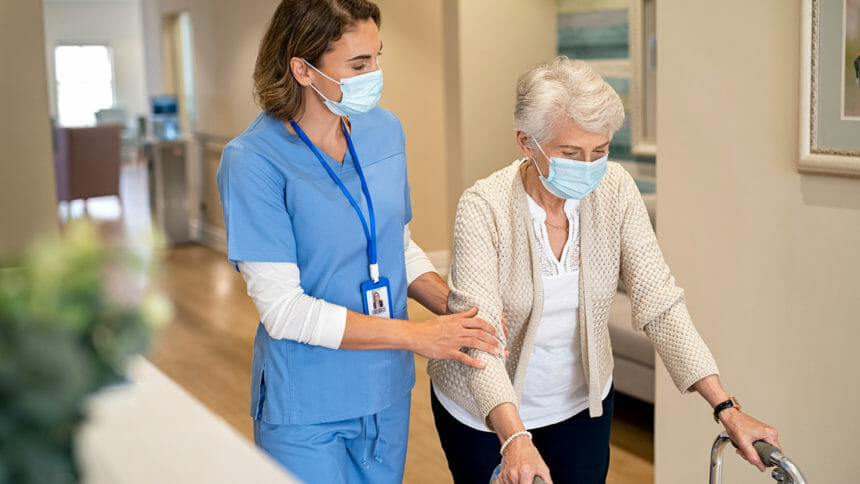A recent study published in JAMA Network Open revealed that well-intentioned COVID-19 furlough policies in nursing homes may be doing more harm than good.
The study, conducted by researchers from various institutions including Johns Hopkins and the University of California, Irvine, used computer modeling to simulate the impact of different COVID-19 staff furlough policies in nursing homes. Their findings paint a concerning picture of the current state of elder care.
Even before considering policies linked to the SARS-CoV-2 infection, nursing home understaffing is a point of concern. The study found that roughly 22% of daily care tasks go uncompleted due to lack of staff. When mandatory COVID-19 furloughs are implemented, this problem intensifies, potentially leading to more nonCOVID-related hospitalizations and deaths among residents.
However, the researchers discovered a potential solution. Allowing staff with mild virus symptoms to work while wearing masks could prevent up to 73% of missed care tasks. This approach was associated with only a small increase in COVID-19 transmission and, importantly, no significant increase in COVID-19 hospitalizations.
The study’s findings suggest that the harms caused by understaffing far outweigh the risks of potential COVID-19 transmission when staff with mild illness continue to work. In fact, changing furlough policies could save over $85,000 per year for every 100-bed nursing home. According to the researchers, such a change in regulation could translate to savings well over $1 million for the Centers for Medicare & Medicaid Services while alleviating substantial harm.
Study authors emphasized that no one advocates that nursing home employees should be encouraged to work while sick with a contagious pathogen. “Rather, our work underscored the reality that the development of appropriate nursing home staffing policies involves tradeoffs (eg, chronic understaffing means that reducing available staff time can have consequences).”
Allowing nursing home staff who are mildly ill with COVID-19 to work while masked is one such compromise, with COVID-19 transmission resulting in less harm than missed tasks due to even greater staff shortage.





